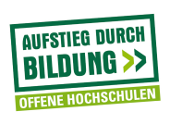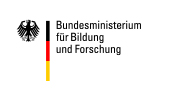Control System Theory and Engineering
To an increasing degreee, requirements on safety, sustainability and economic feasibility of technical products and production plants call for modern approaches of control-theory-based methods. Especially in the environment of control theory, simple and heuristically designed controllers have been reaching their limits. Systematic design of model-based controllers in time domain allows considering of non-linearities and has the potential to achieve significantly improved controller results.
The Description of the module you find at the Module Handbooks:
Module Handbook Sensor Systems Engineering
Module Handbook Artificial Intelligence and Machine Learning for Connected Systems
- Linear and non-linear time-continuous systems in state space
- Linearization and general solution of linear differential equations of states
- Structural properties of LTI systems in state space (stability, controllability, observability
- Design of state controllers and state observers for linear systems
- Analysis of non-linear systems (Lyapunov-stability)
- Control and feedback control of non-linear systems
Students are able to describe the necessary mathematics and system-theory basics. They are capable of applying the methods of model-based control theory to linear and non-linear systems. They are able to describe and analyze time-continuous systems in time domain. They are able to categorize systems according to system-theoretic properties. Further, they have the ability to apply formal methods in order to design controllers in time domain. They are also able to apply methods for designing controllers for non-linear systems and are capable of managing its operation.
The study program combines self-study and group work in a flexible online learning environment. Students have access to video lectures, a detailed and user-friendly script tailored for working professionals, as well as interactive quizzes and exercises. Regular tutorial sessions and online office hours with mentors support the learning process, while discussion forums facilitate exchange among students. For more detailed information, please refer to the module handbook.
- Fundamentals of higher mathematics, especially linear algebra
- Fundamentals of signals and systems
- Basic design methods for LTI systems in frequency domain
- Description of linear, time-invariant systems in time and frequency domain, Laplace transform, analysis of LTI systems (Bode and Nyquist plots)
Recommended requirements:
- Desktop computer or notebook, with a supported version of Microsoft Windows, Apple macOS or Linux
- Headset
- Current version of Mozilla Firefox, Google Chrome, Apple Safari or Microsoft Edge
- Access to the internet (e.g., via xDSL, Cable, LTE, 5G) with a minimum data rate of 3 Mbit/s for downstream and 384 kbit/s for upstream.
In case of questions regarding the technical requirements, please don't hesitate to contact us.
Regular participation in online seminars will help you solving exercises, which have to be loaded up to the learning management system after request of the mentor. Passing the exercises successfully is recommended for participation in the final oral examination at Ulm University. For further information, please have a look into the module description.
After finishing your exam successfully you will get a certificate and a supplement, which will list the contents of the module and the competencies you have acquired. The supplement confirms you the equivalent of 6 credit points (ECTS).
Lecturer

Dr. Soenke Rhein
Development engineer Mechatronics at Carl Zeiss SMT GmbH

Gefördert von:



